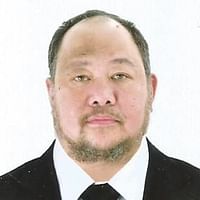For much of his career, legendary college basketball coach Bobby Knight did not have the best of relationships with members of the sportswriting community. That led him to create a fake six-foot-eight player named ‘Ivan Renko’ to pull off one of the biggest pranks in collegiate basketball history.
The target of ‘The General,’ in particular, were the self-proclaimed recruiting experts in newspapers around the country. Knight found that most of the time they fed fans information that was inaccurate and put undue public pressure on those being recruited.
Bobby Knight was always against such evaluation processes of disreputable basketball recruiting experts and took occasional shots at them. However, he decided to take his dissent several notches higher in 1993, creating the fictitious Yugoslavian player Ivan Renko.
In his book Bobby Knight: My Story, the three-time NCAA Division 1 champion coach shared how he came about creating Ivan Renko and how it exposed some of the flaws in sports journalism in the process.
Explore the NBA Draft 2024 with our free NBA Mock Draft Simulator & be the GM of your favorite NBA team.

Late in the 1992-93 NCAA season, as his Sunday television show was ending, the Indiana Hoosiers coach commented that a 6-foot-8, 230-pound player from Yugoslavia had committed to play for Indiana.
To avoid deep scrutiny from the media and the basketball community, Knight played it up that he was not allowed to talk about the player too much because of the then existing political situation of civil unrest in Yugoslavia.
While Ivan Renko was completely fictional, a few recruiting services began listing him as a prospect, complete with in-depth descriptions of his potential and game style.
Some of the more reputable recruiting experts were more circumspect on reporting about the player, claiming to have never heard of Renko but would look into it, which Knight admired them for.
However, there were others who went too far to even claim to possess films of Renko playing basketball or have even seen him play first-hand. The resulting “expose” had Bobby Knight brimming with satisfaction, as he was able to show glaring truths in the sportswriting community.
He wrote in his book:
“There was, of course, no Ivan Renko. I made up everything about him on the broadcast, and in a few follow-up comments that kept it all going.
"I wanted to make a point that so much of what people pay money to get from recruiting experts is sheer bullshit, and I think I - and they, in their reactions - did make that point. I figured it was kind of like the false D-day plans the Allied forces 'allowed' to get into German hands."
Thirty years since the Ivan Renko tale, it's still being used as a case study for how sports journalists should dispense their duties, especially in the era of fake news.
Who is Bobby Knight?
Bobby Knight coached the Indiana Hoosiers from 1971-2000, leading the school to the NCAA Division 1 titles in 1976, 1981 and 1987. He helped Indiana to five NCAA Final Fours, 11 Big Ten regular season titles and the NIT Tournament championship in 1979.
He coached the U.S. men’s team to the gold medal in the 1984 Olympic Games in Los Angeles. Among his players were future Hall-of-Famers Michael Jordan, Patrick Ewing and Chris Mullin.
Among the awards he received as a coach were the Henry Iba Award (two times), Naismith Coach of the Year award (1987), AP Coach of the Year (three times) and the 2007 Naismith Award.
Knight was inducted into the Basketball Hall of Fame in 1991 and in the College Basketball Hall of Fame in 2006.
